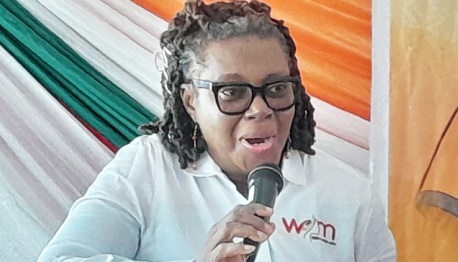The President of Women in Mining (WIM) Ghana, Dr Georgette Barnes Sakyi-Addo, has called on women in the sector to be abreast of knowledge of all forms of harassment in workplaces.
This, she said, would enable them to influence decision making at their workplaces and deliver inclusive corporate policies, particularly on sexual harassment, to promote conducive environment for both men and women to work happily.
Dr Sakyi-Addo was speaking at a day's training on workplace harassment in Accra last Thursday for women and key players in the mining industry.
About 90 participants attended the training, both in-person and virtually.
They were trained on how to identify sexual harassment at workplaces, laws governing sexual harassment, as well as case study of various forms of harassment at workplaces.
The training was organised by WIM Ghana, a leading network that promotes the advancement of women in the natural resources sector with support from Ford Foundation.
Awareness creation
Dr Sakyi-Addo said although some large-scale mining firms had zero tolerance for all forms of harassment at the workplace, she said it was imperative for WIM to create awareness about harassment and its impact on productivity.
“Because of some socio-cultural issues when two per cent of women are harassed it is an issue. The industry players should pay much attention when women complain about all forms of harassment at the workplace, including sexual harassment,” she said.
The president said the percentage of women in the mining industry was low, a ratio of one woman to nine men.
“So the more we increase female participation, the more females can upgrade their skills so that they are involved in decision making to influence decisions that will be inclusive of all genders,” she added.
Mining sector
Dr Sakyi-Addo further explained that the mining sector was characterised by low numbers of women, low ranks of women, biological differences, workplace designs and historical and socio-cultural nuances.
These issues, she said, could put females in vulnerable positions in both formal and informal work conditions.
“It is important that we recognise these issues exist so that we equip ourselves with knowledge and skills to prevent and handle them as and when they occur," the president added.
Policies
Two consultants on gender-related issues, Dr Angela Dwamena-Aboagye and Naana Frimpong, both entreated organisations to put in place inclusive workplace policies to address all forms of harassment.
They mentioned various forms of harassment that existed in some organisations to include bullying, intimidation, sexual harassment from both males and females, discrimination, cyber harassment, expensive jokes and malicious gossip.
The consultants pointed out that such negative tendencies, which the Labour Act 651 of 2003 frowns upon, did not promote effective and conducive environment at the workplace.

